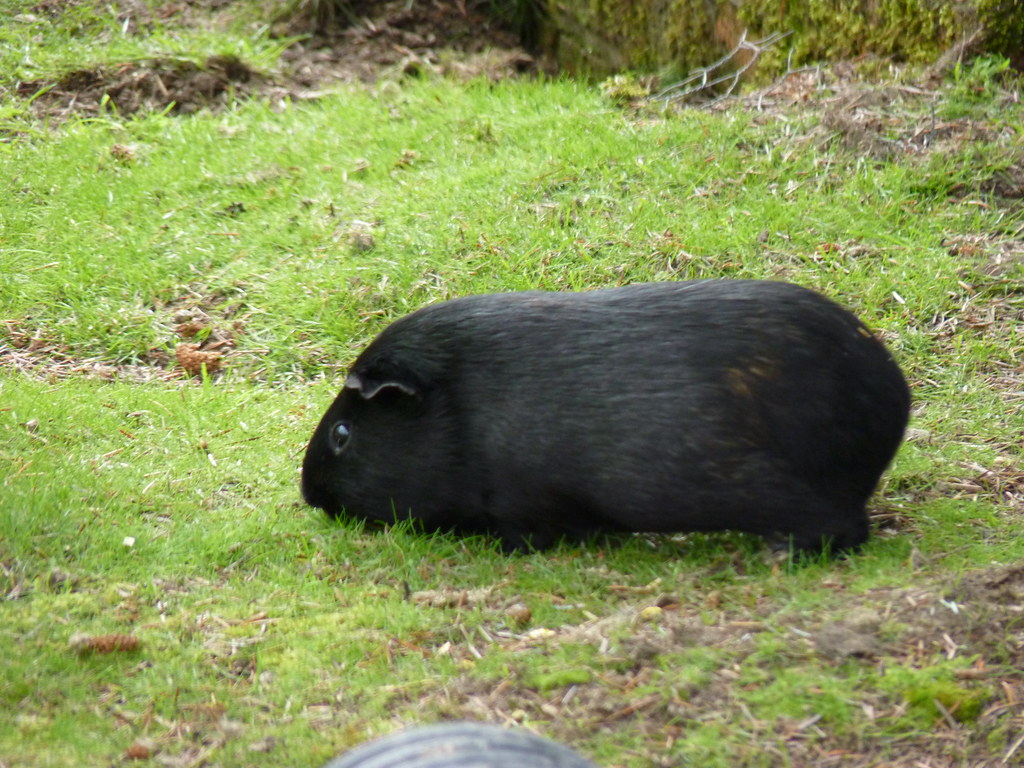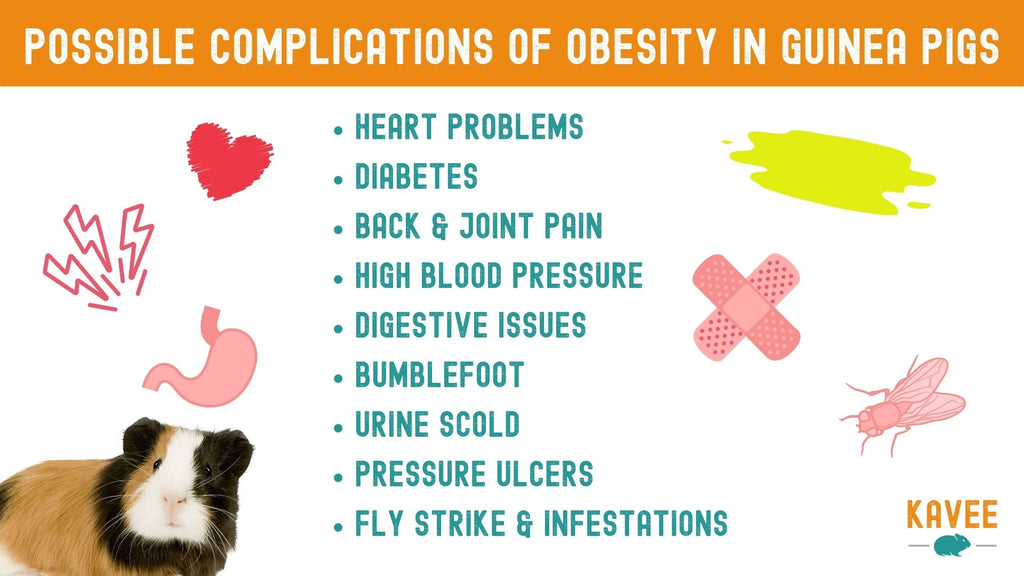Health & Care
Obese Guinea Pigs Causes, Prevention, and Treatment
Guinea pigs are popular pets known for their docile and friendly nature. However, just like any other animal, they are prone to health issues, one of which is obesity. An obese guinea pig can suffer from various health problems, including joint pain, respiratory difficulties, and a shorter lifespan. In this article, we will explore the causes, prevention, and treatment of obesity in guinea pigs.
Seemore: Can Guinea Pigs Eat Zucchini? – Health Benefits And Drawbacks
Contents
What is Obesity in Guinea Pigs?

Obesity in guinea pigs refers to an accumulation of excess fat in their body, causing them to become overweight. This condition is common in domesticated guinea pigs as they tend to lead a sedentary lifestyle with limited exercise opportunities. Overfeeding and lack of proper nutrition also contribute to obesity in guinea pigs.
Causes of Obesity in Guinea Pigs
- Overfeeding: One of the main causes of obesity in guinea pigs is overfeeding. Pet owners may often give too much food or treat their guinea pigs with high-calorie snacks, leading to weight gain.
- Lack of Exercise: Guinea pigs require daily exercise to maintain a healthy weight. However, many pet owners do not provide enough opportunities for their guinea pigs to move around and play, leading to a sedentary lifestyle.
- Poor Diet: A diet high in carbohydrates, sugar, and fats can cause obesity in guinea pigs. Pellets and treats that are marketed specifically for guinea pigs may contain unhealthy ingredients that can contribute to weight gain.
- Genetic Predisposition: Some guinea pigs may be genetically predisposed to obesity, making them more prone to gaining weight even with a balanced diet and regular exercise.
- Hormonal Imbalance: Hormonal imbalances, such as thyroid disorders, can also lead to weight gain in guinea pigs.
Signs of Obesity in Guinea Pigs
- Round or bulging belly
- Difficulty moving or breathing
- Fat deposits around the neck, shoulders, and hips
- Difficulty grooming themselves
- Reduced appetite
Prevention of Obesity in Guinea Pigs

Preventing obesity in guinea pigs is crucial for their overall health and well-being. It requires a combination of proper diet, exercise, and regular veterinary check-ups.
Proper Diet
A healthy diet is essential in preventing obesity in guinea pigs. Here are some tips to ensure your guinea pig’s diet is well-balanced:
- Feed high-quality hay as the main source of food. Hay should make up 80% of their daily diet.
- Limit pellets to 1/8 cup per day for an adult guinea pig.
- Avoid sugary treats and snacks. Instead, offer fresh vegetables and fruits in moderation.
- Always provide clean, fresh water.
Regular Exercise
Guinea pigs need plenty of opportunities for exercise to maintain a healthy weight. Here’s how you can incorporate exercise into your guinea pig’s routine:
- Provide a spacious cage with plenty of room for them to move and play.
- Allow supervised outdoor time in a secure and predator-free area.
- Offer toys and tunnels for them to play and explore.
- Take them for short walks on a harness and leash.
Veterinary Check-ups
Regular visits to the veterinarian can help detect any underlying health issues that may contribute to weight gain in guinea pigs. Your vet can also provide recommendations on your guinea pig’s diet and exercise plan.
Treatment of Obesity in Guinea Pigs

If your guinea pig is already obese, it’s important to take immediate action to help them lose weight and regain their health. Here are some ways to treat obesity in guinea pigs:
Adjust Diet
Work with your veterinarian to create a well-balanced diet plan for your guinea pig. Be sure to include more hay and leafy greens in their diet and limit pellets and treats.
Increase Exercise
Increase your guinea pig’s daily exercise routine by providing more opportunities for them to move and play. You can also try incorporating interactive toys and games to encourage physical activity.
Monitor Weight Loss
Regularly weigh your guinea pig to track their weight loss progress. Slow and gradual weight loss is healthier for guinea pigs than sudden drops in weight.
FAQs (Frequently Asked Questions)

Q: Can obesity be reversed in guinea pigs?
A: Yes, obesity in guinea pigs can be reversed with proper diet and exercise. However, it’s important to seek advice from a veterinarian before starting any weight loss program for your guinea pig.
Q: What is the best diet for guinea pigs to prevent obesity?
A: A balanced diet of high-quality hay, fresh vegetables, and limited pellets is the best diet for guinea pigs to prevent obesity.
Q: Are there any health risks associated with obesity in guinea pigs?
A: Yes, obesity can lead to various health issues such as joint pain, respiratory difficulties, and a shorter lifespan in guinea pigs.
Q: Can a guinea pig lose weight without exercise?
A: Exercise is crucial in helping guinea pigs lose weight, but simply reducing their caloric intake can also aid in weight loss.
Q: How often should I take my obese guinea pig to the veterinarian?
A: It’s recommended to take your guinea pig for regular check-ups every 6-12 months. However, if they are obese, more frequent visits may be necessary to monitor their progress and ensure their health is improving.
Conclusion
Obesity is a serious health issue that can affect the well-being and lifespan of guinea pigs. As responsible pet owners, it’s our duty to provide a healthy diet, plenty of exercise, and regular veterinary care for our guinea pigs to prevent and treat obesity. With proper care and attention, we can help our guinea pigs live a happy and healthy life.
